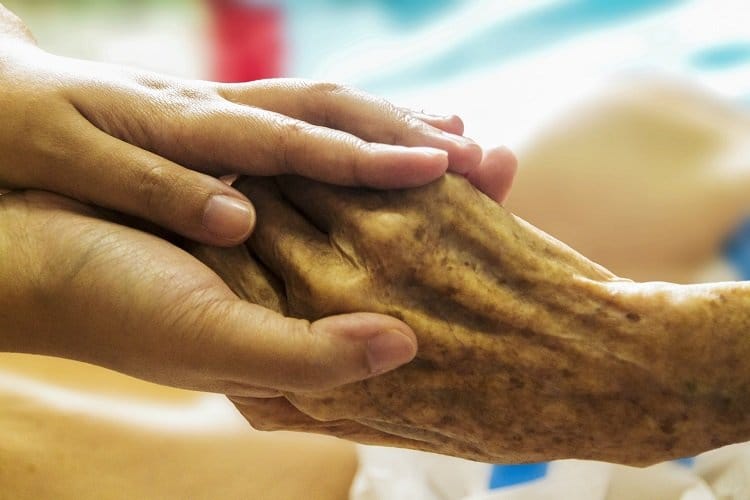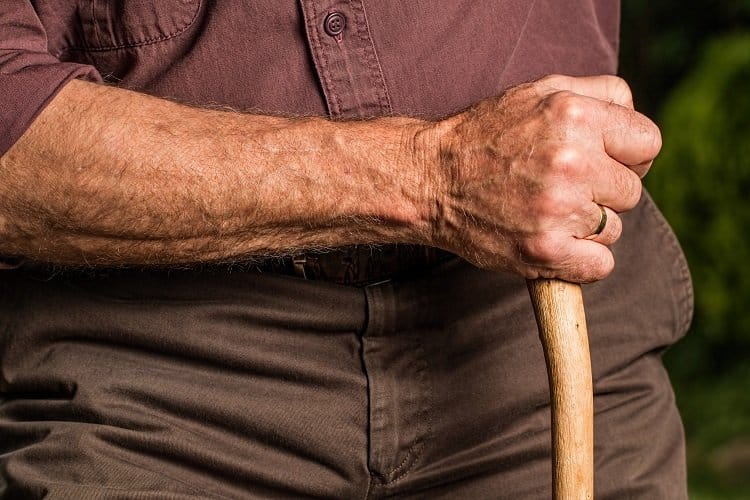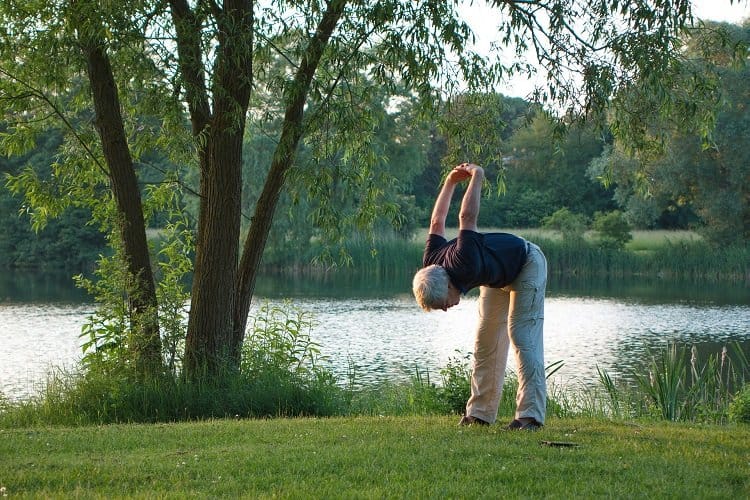Approximately three million seniors end up in the emergency room every year after experiencing a fall. Of those three million, hundreds of thousands experience injuries that cause them to be hospitalized, and nearly 30,000 die from their injuries.
Even when seniors don’t sustain serious injuries from them, falls are still extremely traumatic and can cause older adults to isolate themselves as a form of prevention.
If you have a parent or loved one who is struggling with fear or anxiety after a fall, these five tips can help them regain their confidence.
1. Acknowledge Their Fear

First things first, it’s important to acknowledge their fears surrounding falling. As the statistics mentioned above make clear, falls are a serious issue, and seniors’ fears about them are definitely not unfounded.
In addition to the fear of pain caused by the fall, seniors also have to worry about the potential costs of hospitalization and treatment, as well as a possible loss of mobility and independence.
Don’t brush off your parent or loved one’s fears or try to convince them that they’ll never experience another fall. Instead, let them know that you understand their fears and want to help them overcome them.
Have a conversation that stems from a place of love and empathy, rather than from a place of lecturing or belittling.
2. Work with a Doctor to Create an Action Plan
After a loved one experiences a fall, even if they don’t have any visible injuries, it’s important for them to visit a doctor. A doctor will check to make sure there isn’t any damage, and, if the cause isn’t immediately clear, they can also help seniors find out what happened that made them fall.
Common medical issues that lead to dizziness and falls include:
-
Low blood pressure
-
Vision changes
-
Certain medications, including those meant to treat urinary incontinence and digestive issues
-
Vitamin D deficiencies
A doctor can also give seniors recommendations for exercises that will help them improve their balance to avoid falling again.
3. Prevent Future Falls

Another way to ease anxiety about falling is to “fall-proof” your parent or loved one’s home.
Some ways you can do this include:
-
Have them wear a medical alert bracelet or necklace so they can easily call emergency personnel
-
Remove hazards like loose rugs or extension cords
-
Replace light bulbs inside and outside to make obstacles visible
-
Install grab bars in the bathroom for extra support on slippery floors
-
Invest in a shower chair to make bathing easier
-
Invest in walking aids like canes or rollators for extra stability
In addition to fall-proofing the home, it can also be helpful to invest in some wardrobe upgrades that decrease seniors’ chances of slipping and falling. Replace loose clothing that can easily get caught on furniture or door knobs with form-fitting attire, and swap out slippers without traction for sturdy, non-slip shoes.
4. Encourage Them to Stay Active

After experiencing a fall, the idea of exercising may seem laughable to anxious seniors. In reality, though, staying active is essential for seniors to improve their strength, mobility, and balance.
Trying to convince a loved one to start exercising after they’ve fallen can be difficult, but having a medical professional involved in the discussion can make them more receptive.
Once your parent or loved one is ready to try exercise, it’s important to start slow. Simply taking a short walk outside can be a great starting point. Eventually, though, it’s important for them to also factor in resistance and balance training to build muscle and become more functional.
To learn proper technique and avoid injuring themselves, it’s best for seniors to work with a physical therapist or personal trainer when they begin resistance training. Investing in a few sessions to learn the basics can make a big difference in both results and confidence.
5. Know When to Hire a Professional
Because falls are often so traumatic for seniors, it’s important to recognize that you may not be able to help your parent or loved one recover on their own. Sometimes, they require counseling from a trained therapist.
Exposure-based cognitive behavior therapy is very beneficial for helping seniors overcome their fears of falling, especially when it involves techniques like relaxation training and education.
Talk to your parent or loved one’s regular doctor to get a recommendation for a good therapist. You can also seek out recommendations for friends, other family members, or online support groups.
Final Thoughts
If a senior in your life is struggling to regain confidence after experiencing a fall, it’s important to take their concerns seriously and take appropriate measures to help them feel better. These five techniques are a great starting point to get seniors feeling more like their old selves again.

